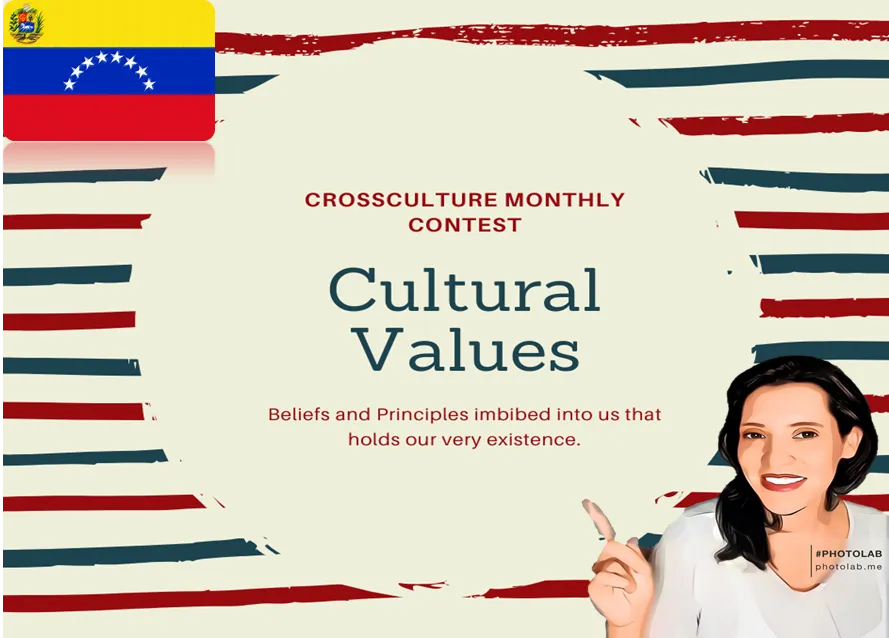
Fuente de la bandera/ Source of the flag: Pixabay
Español
Feliz y bendecido presente Hivers
En días recientes @starstrings01 a través de la Comunidad de CrossCulture nos hizo una invitación interesante para compartir los valores de nuestra cultura o país, destacando el espacio que tenemos para explicar por qué seguimos algunos principios y no otros.
Hablar de valores culturales implica a mi parecer abordar las creencias, tradiciones y/o costumbres de un pueblo, lo que abarca aspectos muy diversos como la lengua, la religión, la vestimenta, ideas o principios de la población, tradiciones que viajan de generación en generación, es decir, que son signos distintivo de ese grupo, tribu o sociedad.
Esto me hizo pensar que en mi país, o al menos en mi ciudad se han ido perdiendo muchas costumbres de nuestra cultura e incluso, cuando estuve investigando al respecto me di cuenta que habían otras tantas que desconocía, propias de cada uno de los Estados o entidades que conforman Venezuela.
Por eso hoy voy hablarles de ciertas ideas o principios que siento están presentes en nuestro país, y de algunas tradiciones culturales más comunes, particularmente, aquellas que promueven el encuentro familiar, la exaltación de la vida y la celebración.
English
In recent days @starstrings01 through the CrossCulture Community made us an interesting invitation to share the values of our culture or country, highlighting the space we have to explain why we follow some principles and not others.
Talking about cultural values implies, in my opinion, addressing the beliefs, traditions and/or customs of a people, which encompasses very diverse aspects such as language, religion, clothing, ideas or principles of the population, traditions that travel from generation to generation, that is to say, that are distinctive signs of that group, tribe or society.
This made me think that in my country, or at least in my city, many customs of our culture have been lost and even, when I was researching about it, I realized that there were many others that I did not know, typical of each of the states or entities that make up Venezuela.
That is why today I am going to talk to you about certain ideas or principles that I feel are present in our country, and about some of the most common cultural traditions, particularly those that promote family gatherings, the exaltation of life and celebration.
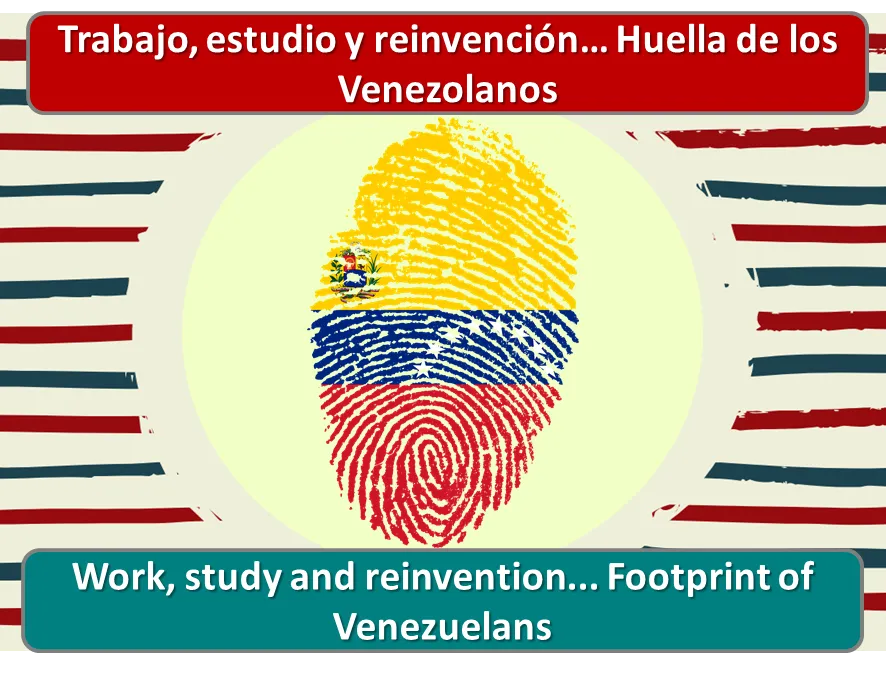
Fuente de la huella/ Source of the footprint: Pixabay
Trabajo y estudio.
Desde muy pequeña me inculcaron el valor del trabajo, al punto que ya a los 14 años deseaba ser productiva y ganar mi propio dinero, incluso les confieso que de niña incursioné en el mundo de las ventas con mis propias muñecas. Siempre ví a mis padres esforzarse mucho y orgullosamente puedo decir que nos dieron todo cuanto necesitábamos y aunque no vivimos con riquezas materiales, siempre se las ingeniaron para darnos con su profesión de educadores (la profesión peor pagada en nuestro país) todas las herramientas necesarias para surgir.
Esta es mi historia, la de mis padres y también la de muchos venezolanos que día a día salen a trabajar para alcanzar sus metas, dando siempre lo mejor de sí, muchos desde muy tempranas horas, sorteando todo tipo de obstáculos y cada día es un nuevo día para empezar.
Aunado a este valor (aunque tal vez no sea más que un paradigma que nos toque trascender cómo cultura), es muy común escuchar en Venezuela que "hay que estudiar para -Ser- alguien en la vida", creo que es una frase arraigada en nuestra historia desde hace muchas generaciones.
Independientemente de que demostraras algún talento para ciertos trabajos que no ameritaban mayores estudios, estaba presente una especie de exigencia "social" de que debías hacer tus estudios formales, al menos hasta bachillerato, aunque la gran mayoría de los jóvenes son impulsados por sus familias para ir a la Universidad y estudiar una carrera. Hasta hace unos pocos años la educación era accesible económicamente en ese nivel.
Work and study.
From a very young age I was instilled with the value of work, to the point that by the age of 14 I wanted to be productive and earn my own money, I even confess that as a child I ventured into the world of sales with my own dolls. I always saw my parents work hard and I can proudly say that they gave us everything we needed and although we did not live with material wealth, they always managed to give us with their profession as educators (the worst paid profession in our country) all the necessary tools to emerge.
This is my story, that of my parents and also that of many Venezuelans who every day go out to work to achieve their goals, always giving the best of themselves, many from very early hours, overcoming all kinds of obstacles and every day is a new day to start.
In addition to this value (although perhaps it is nothing more than a paradigm that we have to transcend as a culture), it is very common to hear in Venezuela that "you have to study to -be- someone in life", I think it is a phrase rooted in our history for many generations.
Regardless of whether you showed some talent for certain jobs that did not merit further studies, there was a kind of "social" demand that you had to do your formal studies, at least until high school, although the vast majority of young people are driven by their families to go to college and study a career. Until a few years ago education was economically accessible at that level.
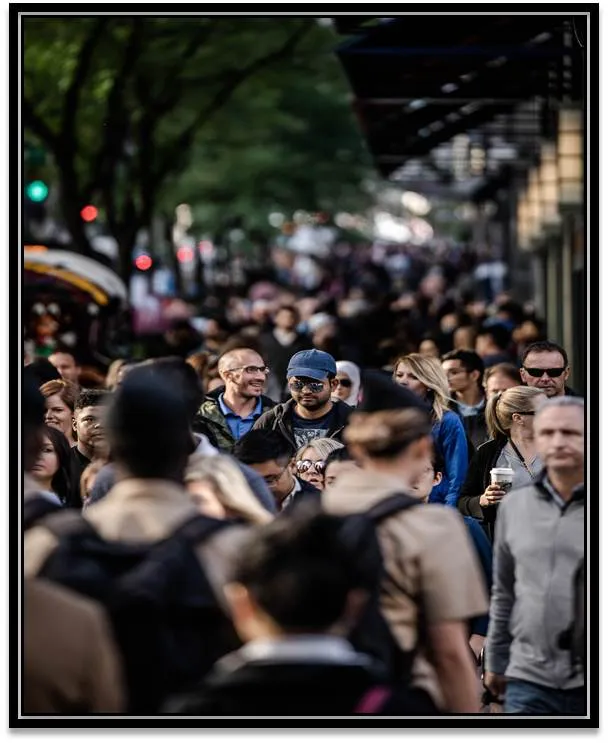
Fuente/ Source: Pexels

Familia y tradiciones culturales
Lo anterior pudiera catalogarlo como valores culturales de nuestro gentilicio, que marcan nuestro día a día en nuestra forma de pensar y actuar por el mundo, al que se le sumaría el valor de la Familia, que tiene un gran peso en el desarrollo de cada individuo dentro de la sociedad y constituye un pilar fundamental en cualquier cultura del mundo.
En nuestra cultura, la Familia tiende a ser proteccionista y muy unida, hay un ambiente de cuidado mutuo y también de crecimiento. Los hijos suelen acompañar a sus Padres en todos sus proyectos y emprendimientos, y viceversa. Creo que hay mucha solidaridad entre nosotros y aunque estoy consciente de que todas las familias no son iguales, siento que este debe ser un común denominador en mi país, porque las separaciones que hemos vivido estos últimos años por la diáspora de venezolanos ha sido realmente difícil, un proceso doloroso en la mayoría de las familias venezolanas que aún seguimos transitando.
En este contexto, hay tradiciones que celebran la mayoría de las familias venezolanas, con muchas excepciones por la gran diversidad cultural que converge en nuestras tierras desde la época de la colonización.
A nivel de creencias religiosas, la mayoría de la población profesa la religión católica, y dentro de esta existen ciertas ceremonias que cumplir para tomar cada sacramento como es el caso del Bautismo, la comunión, la confirmación y el matrimonio. Son actos religiosos que se realizan en las iglesias que no tienen mayores rituales más allá de ese acto eclesiástico. También se desarrollan actividades especiales durante la "semana santa", que es un espacio de recogimiento y de revivir la vida, pasión y obra de Jesucristo, durante 4 días se siguen los actos litúrgicos y se realizan procesiones en las avenidas.
No existen como en el caso de los africanos rituales en los que las familias se unan con ocasión al matrimonio, como nos compartió @d-goddess en su maravilloso post, sin embargo si es un momento de gran celebración entre las familias.
Family and cultural traditions
The above could be cataloged as cultural values of our people, which mark our day to day in our way of thinking and acting in the world, to which would be added the value of the Family, which has a great weight in the development of each individual within society and is a fundamental pillar in any culture in the world.
In our culture, the Family tends to be protectionist and very united, there is an atmosphere of mutual care and also of growth. Children tend to accompany their parents in all their projects and undertakings, and vice versa. I think there is a lot of solidarity among us and although I am aware that all families are not the same, I feel that this should be a common denominator in my country, because the separations that we have experienced in recent years due to the Venezuelan diaspora have been really difficult, a painful process in most Venezuelan families that we are still going through.
In this context, there are traditions that most Venezuelan families celebrate, with many exceptions due to the great cultural diversity that has converged in our lands since the time of colonization.
In terms of religious beliefs, the majority of the population professes the Catholic religion, and within this religion there are certain ceremonies that must be fulfilled in order to receive each sacrament, such as Baptism, communion, confirmation and marriage. These are religious acts that take place in churches that do not have major rituals beyond the ecclesiastical act. There are also special activities during the "holy week", which is a space for recollection and to relive the life, passion and work of Jesus Christ, during 4 days the liturgical acts are followed and processions are carried out in the avenues.
There are no rituals as in the case of the Africans in which families unite on the occasion of marriage, as @d-goddess shared with us in his wonderful post, however it is a time of great celebration among families.
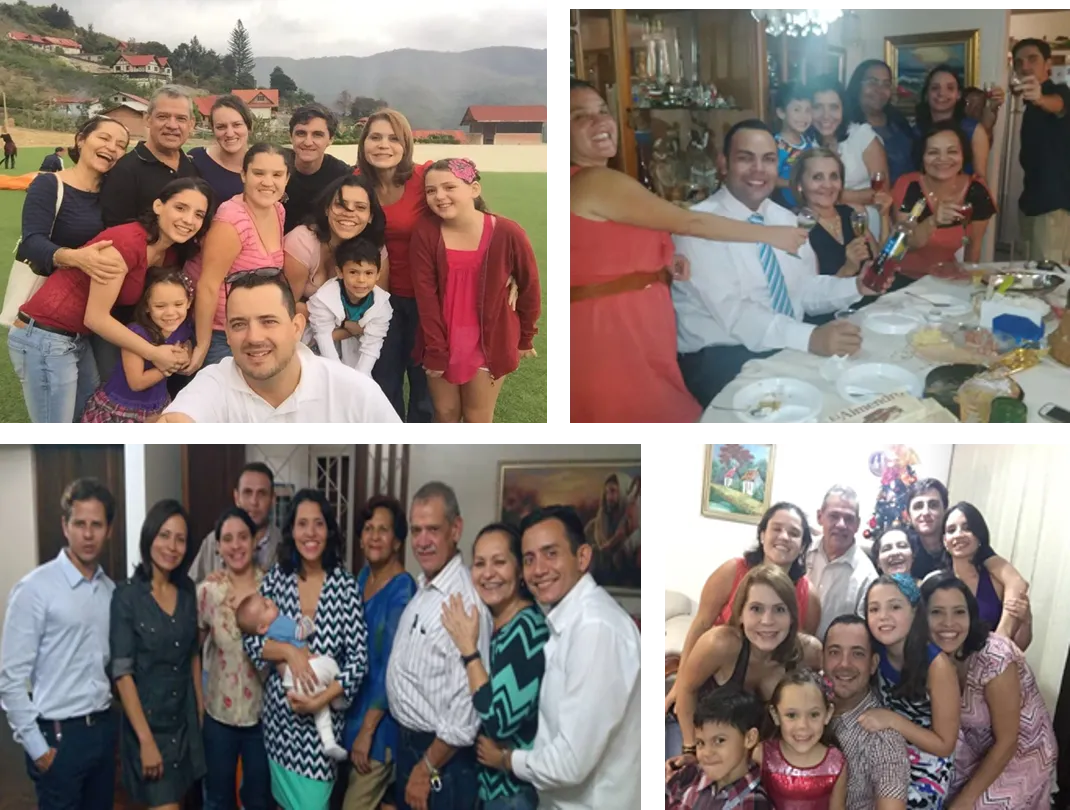
Luego tenemos otras tradiciones relacionadas a las épocas de celebración como son: los carnavales y la navidad. Son realmente momentos muy especiales de compartir en familia.
En los carnavales, en muchas ciudades del país se realizan comparsas y las personas salen disfrazadas a bailar y disfrutar, y aunque no se parecen mucho a los carnavales de nuestro hermano país Brasil, en algunos Estados se esmeran mucho en producir eventos coloridos y con excelentes disfraces y danzas.
También se acostumbra en los colegios que los niños se disfracen y hagan sus comparsas.
En cuanto a la celebración de navidad, los encuentros familiares inician con la elaboración del alimento tradicional que comemos en esa época del año que se llama "Hallacas", y también en torno a la decoración del hogar y los diferentes espacios con adornos alusivos a la navidad, la elaboración del pesebre o montar un árbol de navidad son costumbres que se mantienen entre los venezolanos. Luego durante ese mes se propician muchos encuentros entre familiares y amigos, siendo las fechas más importantes la celebración del nacimiento del Niño Dios y la llegada del año nuevo.
Se acostumbra por lo general compartir regalos el día 24 de diciembre, y los niños reciben su tradicional regalo del "Niño Jesús o Santa Claus", debajo del pesebre o árbol de navidad.
Then we have other traditions related to the times of celebration such as: carnivals and Christmas. They are really very special moments to share with the family.
During carnivals, in many cities of the country there are parades and people go out in costumes to dance and enjoy, and although they are not very similar to the carnivals of our brother country Brazil, in some states they take great care to produce colorful events with excellent costumes and dances.
It is also customary in schools for children to dress up in costumes and make their comparsas.
As for the celebration of Christmas, family gatherings begin with the preparation of the traditional food that we eat at that time of the year called "Hallacas", and also around the decoration of the home and the different spaces with decorations alluding to Christmas, the elaboration of the manger or assembling a Christmas tree are customs that are maintained among Venezuelans. Then during this month many meetings are held among family and friends, being the most important dates the celebration of the birth of the Child God and the arrival of the New Year.
It is generally customary to share gifts on December 24, and children receive their traditional gift from the "Baby Jesus or Santa Claus", under the manger or Christmas tree.
Estos son algunos valores que quise destacar de mi cultura, estoy muy agradecida con la Comunidad de CrossCulture por darnos este espacio para reflexionar y compartir aspectos importantes de nuestras culturas.
Invito a participar a @pelulacro @evev y @graciadegenios.
Si deseas leer las bases del concurso, puedes visitar este enlace
¡Hasta el próximo reto!
These are some values that I wanted to highlight from my culture, I am very grateful to the CrossCulture Community for giving us this space to reflect and share important aspects of our cultures.
I invite @pelulacro @evev and @graciadegenios to participate.
If you want to read the contest rules, you can visit this link
Until the next challenge!
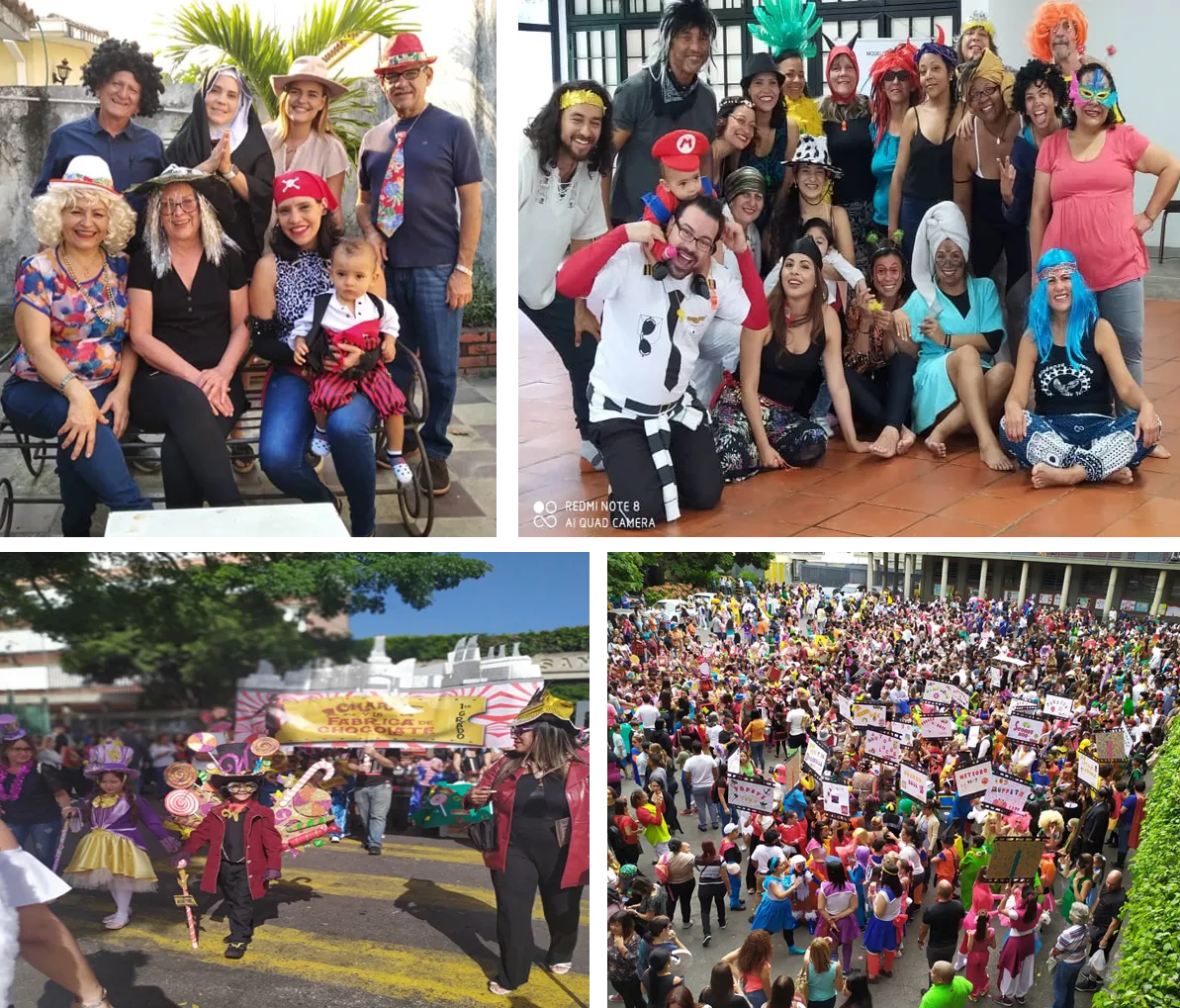

- Traducción realizada con www.DeepL.com / Translated with www.DeepL.com/Translator.
- Banners elaborados usando la imagen de la invitación del Concurso de la Comunidad / Banners made using the Community Contest invitation image.
- Separadores creados con una imagen libre de derecho de autor disponible en Pixabay / Dividers created with a royalty-free image available from Pixabay.
- 100% original content.
Publicaciones anteriores / Previous publications:


